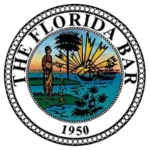Table Contents
Florida court-martial lawyers at Gonzalez & Waddington are civilian court-martial defense attorneys who represent service members stationed in Florida facing felony-level military offenses. The firm focuses exclusively on defending court-martial charges and does not handle administrative or civilian criminal matters. Their attorneys provide worldwide court-martial representation and have experience handling cases across all service branches, including the Army, Navy, Air Force, Marine Corps, and Coast Guard. This trial-centered approach establishes a clear defense presence for service members requiring comprehensive legal guidance in Florida.
The court-martial environment in Florida includes installations where service members may face a wide range of serious charges under the Uniform Code of Military Justice. These include Article 120 sexual assault allegations and other offenses that trigger formal felony-level prosecution. Courts-martial are command-controlled proceedings with procedural structures that allow cases to escalate quickly from investigation to preferral of charges. Potential consequences can affect a service member’s liberty, rank, pay, benefits, and long-term military career. Understanding the pace, command influence, and evidentiary rules of the military justice system is essential for navigating these proceedings effectively.
Defense strategy in Florida courts-martial requires early legal intervention, particularly before official statements, interrogations, or preferral of charges. Court-martial lawyers must be prepared to engage at the Article 32 hearing stage, conduct detailed motions practice, and address panel selection issues to protect the rights of the accused. Trial litigation includes managing interactions with military investigative agencies such as CID, NCIS, OSI, or CGIS, depending on the branch involved. Effective representation demands full trial-readiness and the ability to litigate cases to verdict when necessary. This includes developing case theory, challenging government evidence, and preparing for all phases of the court-martial process in Florida or any other jurisdiction where the case may be referred.
Florida court-martial lawyers at Gonzalez & Waddington are civilian court-martial defense lawyers focused on court-martial defense for service members stationed in Florida facing court-martial charges, felony-level military offenses, and Article 120 sexual assault allegations, and Gonzalez & Waddington handle court-martial cases worldwide, providing contact through 1-800-921-8607 for those requiring aggressive, top-rated representation.
Watch the criminal defense lawyers at Gonzalez & Waddington break down how they defend criminal cases and service members worldwide against Federal Charges, Florida State Charges, UCMJ allegations, CID/NCIS/OSI investigations, court-martials, Article 120 cases, administrative separations, and GOMORs. If you’re under investigation or facing charges, this video explains what your rights are and how experienced criminal defense lawyers can make the difference.
The United States maintains a significant military presence in Florida due to its strategic coastal location, air and maritime access, and role in training and readiness operations. These factors require active-duty, reserve, and guard personnel to operate throughout the state. Service members stationed or temporarily assigned here remain fully subject to the Uniform Code of Military Justice. Their UCMJ status does not change based on local geography or the nature of their mission.
Court-martial jurisdiction in Florida functions through the authority of commanders empowered to initiate and oversee military justice actions. Convening authorities in the state maintain discretion to evaluate allegations, order investigations, and refer charges when warranted. These processes follow the established military chain of command, independent of Florida’s civilian legal system. Military jurisdiction may proceed even when a parallel civilian inquiry is occurring.
Serious allegations arising in Florida can escalate quickly because units in the state often support high-visibility missions and maintain elevated readiness requirements. Commanders may treat reports of misconduct with heightened urgency due to operational tempo and accountability expectations. In such environments, commanders frequently move swiftly to preserve evidence and maintain discipline. Felony-level accusations may be directed toward court-martial consideration even before all facts are fully evaluated.
Geography influences court-martial defense in Florida by affecting how evidence is gathered and how quickly witnesses can be located or interviewed. The dispersed nature of units and training sites can shape the flow of investigative activities. Command decisions may advance rapidly due to operational schedules and mission demands. These geographic and organizational factors often accelerate the transition from investigation to potential trial.
If you or a loved one is facing criminal charges or a criminal investigation by federal authorities, the military, or the State of Florida, early defense matters. Gonzalez & Waddington provide disciplined, trial-focused criminal defense for high-stakes cases involving serious allegations and complex evidence. To speak with experienced criminal defense lawyers and get confidential guidance, call 1-800-921-8607 or text 954-799-4019 to request a no-cost, confidential consultation.
Florida hosts multiple major military installations, creating a dense operational environment where service members train, deploy, and operate under demanding conditions. High operational tempo and complex mission requirements increase command oversight, which can elevate potential misconduct to formal scrutiny more quickly. Leadership in these environments is required to respond promptly when serious allegations arise, contributing to the initiation of court-martial processes. The concentration of personnel and activity naturally results in more incidents being identified and reported within the military justice system.
Modern reporting mandates require commands in Florida to elevate certain allegations immediately, particularly those involving serious or felony-level misconduct. Offenses such as sexual assault, violent conduct, or significant violations of military regulations often trigger mandatory referral pathways toward court-martial consideration. These systems emphasize rapid and transparent reporting, meaning that allegations can move into formal channels before evidence is fully evaluated. As a result, the reporting culture itself contributes to increased exposure to court-martial proceedings.
Florida’s strategic geography and the visibility of missions conducted from the state influence how quickly cases escalate within the military justice framework. Joint operations, international coordination, and high-profile activities can place additional pressure on commands to act decisively when allegations surface. Public scrutiny and the need to preserve command credibility often accelerate the path from investigation to potential trial. These location-specific dynamics reinforce how environment and mission demands shape the progression of court-martial cases in Florida.
Article 120 UCMJ sexual assault allegations involve claims of nonconsensual sexual conduct, abusive sexual contact, or related misconduct defined as criminal under military law. These allegations are treated as felony-level offenses that may result in severe punitive outcomes if proven at trial. Commands routinely refer these cases to court-martial due to the seriousness of the underlying conduct and the strict enforcement framework. Administrative resolutions are uncommon because the military justice system prioritizes formal adjudication of these offenses.
Service members stationed in Florida may face Article 120 or other felony allegations due to a combination of operational demands and off-duty environments. Local recreational venues, alcohol use, and interpersonal conflicts can contribute to situations that lead to official reports. Mandatory reporting requirements and close command oversight at Florida installations increase the likelihood that allegations will be forwarded for investigation. These factors create a setting in which serious accusations receive immediate attention.
Once an allegation is raised, investigators conduct detailed interviews, collect electronic data, and evaluate witness accounts for consistency and credibility. Commands are typically notified early, and legal authorities begin assessing whether the evidence supports preferral of charges. The investigative process often moves efficiently, reflecting the priority placed on serious offenses. As a result, cases frequently progress to referral for trial without extended delays.
Felony exposure in Florida extends beyond Article 120 and includes offenses such as violent crimes, significant misconduct, or actions that threaten good order and discipline. These offenses carry the possibility of confinement, punitive discharge, and long-term professional consequences. Command actions in Florida installations treat such cases with heightened seriousness. Service members facing these allegations confront substantial legal risk within the court-martial system.








Military justice actions in Florida often begin when an allegation, report, or referral is made to command authorities or military law enforcement. These initial notifications can occur on or near major installations operating within the state and frequently precede a full understanding of the underlying facts. Once reported, the matter is placed within the military justice system’s established framework, prompting immediate assessment by command representatives.
After an allegation is received, formal investigative steps are initiated to develop the evidentiary record. Investigators may conduct interviews, gather witness statements, collect digital information, and coordinate closely with command and legal authorities. Their findings are then reviewed to determine whether the evidence supports moving forward with potential charges under the Uniform Code of Military Justice.
When sufficient information has been assembled, the case may progress toward preferral of charges and additional procedural review. An Article 32 preliminary hearing, when required, allows an assessment of the available evidence and the appropriateness of proceeding. Decisions by the convening authority ultimately determine whether the case will be referred to a court-martial for a contested trial.
Court-martial investigations are generally conducted by military law enforcement units aligned with the service branch of the involved personnel. Agencies such as CID, NCIS, OSI, and CGIS may participate depending on the branch and the member’s assignment in Florida. These entities function to gather facts, document potential violations, and report findings through established military channels. Their roles remain consistent regardless of where the alleged conduct occurs within the state.
Common investigative methods include formal interviews, sworn statements, evidence preservation steps, and digital data review. Investigators routinely coordinate with command authorities and legal offices to ensure the evidentiary record is properly developed. These interactions help define the scope of inquiry as information is collected and verified. Early investigative momentum can shape the direction and depth of the case.
Investigative tactics often influence whether allegations progress to formal court-martial charges. Credibility assessments, witness consistency, and review of electronic communications can have significant impact on how commanders interpret the allegations. The speed with which investigators escalate or document findings also contributes to charging decisions. As a result, investigative posture and supporting documentation frequently drive outcomes before a case reaches trial.
Effective court-martial defense in Florida begins at the earliest stage, often before charges are formally preferred. Early positioning allows defense counsel to shape the developing record and identify issues that may influence the trajectory of the case. This phase includes preserving critical evidence and monitoring investigative activity for procedural accuracy. Such early engagement can affect whether allegations advance toward a fully contested trial.
Pretrial litigation plays a central role in controlling the scope of a court-martial. Motions practice, evidentiary challenges, and detailed examination of government witnesses help define the boundaries of admissible proof. When an Article 32 hearing is required, thorough preparation ensures that the investigative officer receives a clear, structured presentation of the defense position. These steps collectively determine how strong or limited the government’s case will be at referral.
Once a case is referred to trial, the defense shifts to executing a coordinated contested strategy. Panel selection, cross-examination, and the use of expert testimony are employed to test the reliability and coherence of the government’s narrative. Counsel must navigate military rules of evidence and procedure while managing the unique command influences present in Florida-based installations. Effective trial execution requires steady control of the narrative and precise engagement with the panel throughout the proceedings.
Florida hosts several major U.S. military installations whose operational missions, training pipelines, and large populations of active-duty personnel place service members under continual UCMJ oversight, often leading to court-martial actions when serious misconduct is alleged. These environments combine high-tempo operations, deployment readiness demands, and complex off-duty settings. Service members requiring guidance under military law may consult resources such as military lawyer services provided through official channels.
MacDill AFB in Tampa hosts U.S. Central Command and U.S. Special Operations Command, creating a joint environment with a high concentration of personnel supporting global operations. The installation’s strategic mission and deployment-oriented tempo contribute to frequent disciplinary investigations. Court-martial cases often arise from high-pressure operational demands and the large, diverse workforce assigned to joint headquarters activities.
NAS Jacksonville is a major Navy aviation hub supporting maritime patrol and reconnaissance missions with active-duty aircrews, aviation maintenance personnel, and training units. The combination of flight operations, technical responsibilities, and regular deployment cycles can lead to UCMJ exposure when incidents occur on or off duty. This operational setting commonly generates court-martial cases involving aviation units and support commands.
Eglin AFB is a large Air Force installation focused on weapons development, testing, and training, with units from multiple services operating on the range complex. The demanding technical work, joint integration, and frequent training cycles create environments where safety, security, and conduct are closely monitored. Court-martial cases typically stem from mission-related pressures, high-risk activities, and the substantial population of active-duty personnel.
Gonzalez & Waddington regularly defend service members facing court-martial charges arising in Florida, where multiple major installations generate a high volume of serious cases. Their work reflects a detailed understanding of the command cultures, investigative approaches, and regional legal dynamics that shape case development across the state. The firm maintains a focused practice limited to court-martial defense and felony-level military litigation, allowing concentrated attention on the procedures that govern contested trials. This specialization aligns with the demands of serious UCMJ cases stemming from Florida commands.
Michael Waddington brings national authority to trial-level court-martial practice through his authorship of multiple widely referenced texts on military justice, trial advocacy, and cross-examination. His experience litigating complex and high-stakes court-martial cases informs his work on Article 120 litigation and other contested proceedings. He frequently lectures to legal and military audiences on advanced trial strategy, which reinforces his role in shaping courtroom preparation for serious cases. These credentials contribute directly to the firm’s ability to address the evidentiary and procedural challenges present in Florida court-martial trials.
Alexandra Gonzalez-Waddington adds strategic depth through her background handling serious criminal matters and her experience as a former prosecutor. Her work supports the development of case theory, witness preparation, and litigation management in complex court-martial environments. She plays a key role in evaluating investigative gaps and structuring defense strategy for service members facing significant charges in Florida. The firm’s approach emphasizes early intervention, trial readiness, and disciplined planning from the outset of every case.
Question: Can service members be court-martialed while stationed in Florida?
Answer: Yes, service members stationed in Florida remain fully subject to the Uniform Code of Military Justice. Court-martial jurisdiction follows the service member and applies regardless of geographic location.
Question: What typically happens after serious court-martial charges are alleged?
Answer: When a serious allegation is reported, military authorities usually initiate a formal investigation and notify the service member’s command. The command may then consider whether to prefer charges, and the allegation alone can lead to court-martial proceedings.
Question: How does a court-martial differ from administrative or nonjudicial action?
Answer: A court-martial is a criminal proceeding under military law, with the possibility of judicial findings and authorized punitive outcomes. Administrative actions and nonjudicial punishment are separate processes that do not carry the same criminal implications.
Question: What role do investigators play in court-martial cases?
Answer: Military investigators such as CID, NCIS, OSI, and CGIS gather evidence, interview witnesses, and develop case files. Their findings often influence whether a commander refers charges to trial.
Question: How do civilian court-martial lawyers differ from military defense counsel?
Answer: Civilian defense lawyers may represent service members stationed in Florida either alone or alongside detailed military defense counsel. Both types of counsel operate within the military justice system, but civilian attorneys are retained independently by the service member.
A pretrial agreement can limit sentencing exposure or resolve charges.
Asking about experience, strategy, and role is essential.
Limited evidence of prior conduct may be admissible under strict rules.
A GOMOR is a formal reprimand that can permanently affect promotions and retention.
Yes, administrative separation can occur without a criminal conviction.